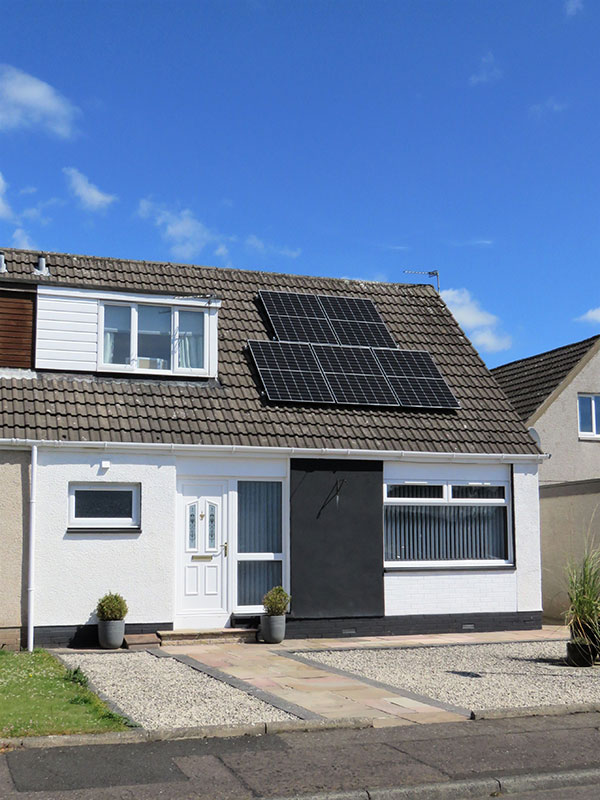Ian Cochran, Head of Consultancy at Changeworks, on how the organisation is supporting housing associations in Scotland to prepare for net zero.

As the UK progresses toward ambitious climate goals, housing associations face the challenge of balancing legislative requirements with the practicalities of retrofitting their housing stock and ensuring tenant comfort.
In Scotland, the delay in the publication of the Social Housing Net Zero Standard (SHNZS) has added an element of uncertainty for many in the sector. However, forward-thinking housing associations, supported by experts like Changeworks, are already taking action to prepare for SHNZS.
The Challenge: Preparing for SHNZS and Decarbonising Housing Stock
Changeworks, a long-standing partner of housing associations in Scotland, has been at the forefront of helping navigate the complexities of retrofit strategies and make ‘no regrets’ decisions on the journey to net zero through innovative solutions and a deep understanding of housing stock data.
While we wait for SHNZS, it is important for housing associations to start planning and taking action to move forward with retrofit plans that prepare for upcoming standards. The 'knowns' around energy efficiency and clean heating outweigh the ‘unknowns’.
As a result, our SHNZS-based analysis remains similar to past compliance and planning assessments we have conducted with our clients, and we are currently analysing the housing stock of three housing associations using the SHNZS-based principles.

The Importance of Data: Understanding Housing Stock for Effective Retrofit
At the heart of any successful retrofit strategy is a deep understanding of the housing stock. Knowing how properties perform and where improvements can be made is key to making informed decisions.
We work with social housing providers in Scotland to collate and analyse comprehensive housing stock data. Through detailed modelling, we can estimate the impact of potential upgrades on properties, including improvements to the SAP score and reductions in space heating demand. This modelling helps housing associations prioritise which upgrades to make, how to allocate funding, and where to focus their efforts for maximum impact.
Our award-winning collaboration with Loreburn Housing Association is an example of how using data can drive meaningful outcomes. We developed an innovative Power BI map to help Loreburn visualise its diverse housing stock and understand where different retrofit measures could be applied. This tool not only allowed Loreburn to streamline project management but also improved communication across teams and contractors.
Making Net Zero a Reality: Fuel Poverty and Affordability
While meeting legislative targets is a key driver for retrofitting, it’s equally important to focus on the lived experiences of tenants. Housing associations need to ensure that retrofit efforts lead to homes that are not only low carbon but also more affordably warm to live in. Ending fuel poverty is just as critical as achieving net zero targets.
The case of Loreburn Housing Association illustrates how using data to plan retrofits supports the next steps needed to ensure better outcomes for tenants. In particular, it demonstrates how sharing and utilising existing, accessible data can move us a step beyond the current pace and scale of securing warm, low carbon homes for tenants.
Lessons from Scotland: A Roadmap for the Future
While this article is a snapshot from Scotland, the principles can be applied UK-wide. Overall, our work with Loreburn underscores the importance of prioritising collaboration through long-term, impactful partnerships. Through collaboration, innovation, and a commitment to understanding housing stock, housing associations can lead the way toward a future where all tenants live in warm, affordable, and sustainable homes.
Find out more about Changeworks at www.changeworks.org.uk
Images © Changeworks![]()
- Log in to post comments















